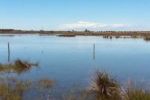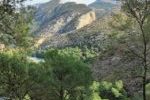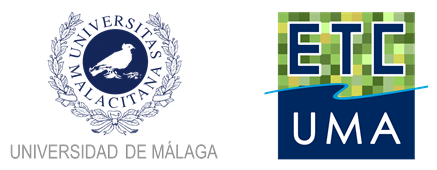Econecta Gibralfaro
Restoration and suturing action in the green heart of Malaga
Project summary
The aim of the project is to reverse the processes of fragmentation and degradation of ecosystems, loss of biodiversity and disconnection of the population from the natural environment, caused by urban development. Through a restoration and suturing action in the mount Gibralfaro, which will serve as a basis for the development of urban biodiversity, the provision of ecosystem services and the well-being and health of the citizens.
Our role
ETC-UMA coordinate the technical and administrative parts of the project on behalf of the University of Malaga, which is responsible for monitoring the ecological and social impacts of the project. The ETC-UMA also technically participate in assessing the environmental impacts of rewilding actions on five indicators: vegetation cover, vegetation health, overrunning of animals, sequestrated carbon and the integrity of the urban ecological network.
More about it
David Rodríguez Rodríguez
davidrr@uma.es
David Rodríguez Rodríguez holds a European-mention PhD in Conservation Biology, an MSc in Ecological Restoration, two BScs: in Biology and in Environmental Sciences, and one University Specialist Degree in GIS and Remote Sensing...
Read More
Our partners
Malaga Town Council (project leader)
Department of Zoology, University of Malaga
Department of Botany, University of Malaga
Department of Physical Geography, University of Malaga
Department of Arts & Architecture, University of Malaga

ETC-UMA launches new technologies applied to ecosystem knowledge
Built on the Google Earth Engine cloud computing platform, the new wetland monitoring system based on remote sensing data, developed by ETC-UMA and presented in April 2023 at the National Centre for Environmental Education (CENEAM by its acronym in Spanish) ...

Celebrating and calibrating Mediterranean forests
The Mediterranean basin is the third-richest hotspot in the world in terms of plant biodiversity and one of the greatest sources of endemic plants on Earth. Its plant diversity accounts for 25 000 plant species, 60 percent of which are ...



